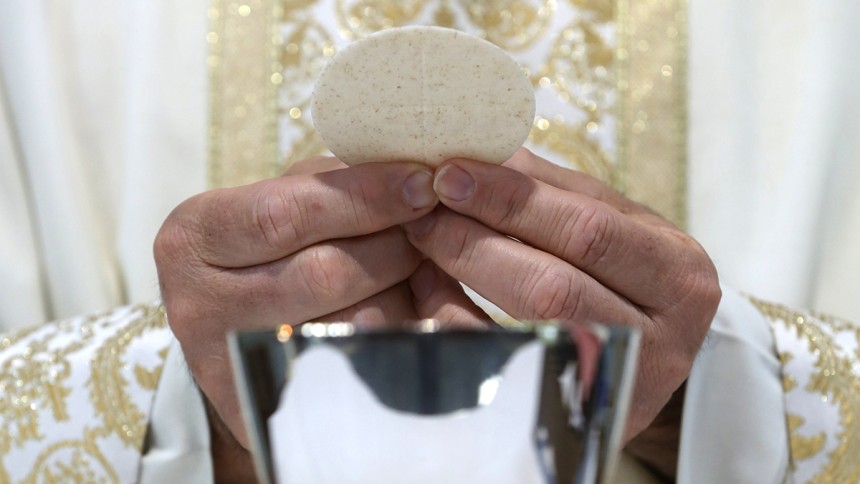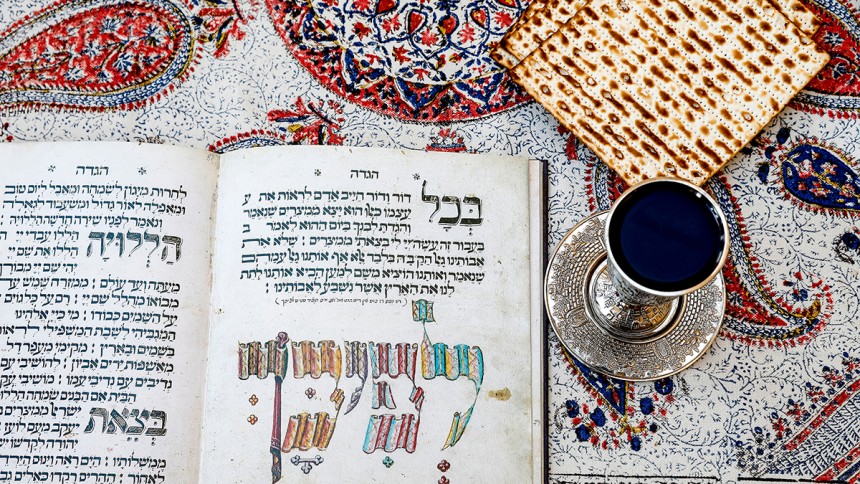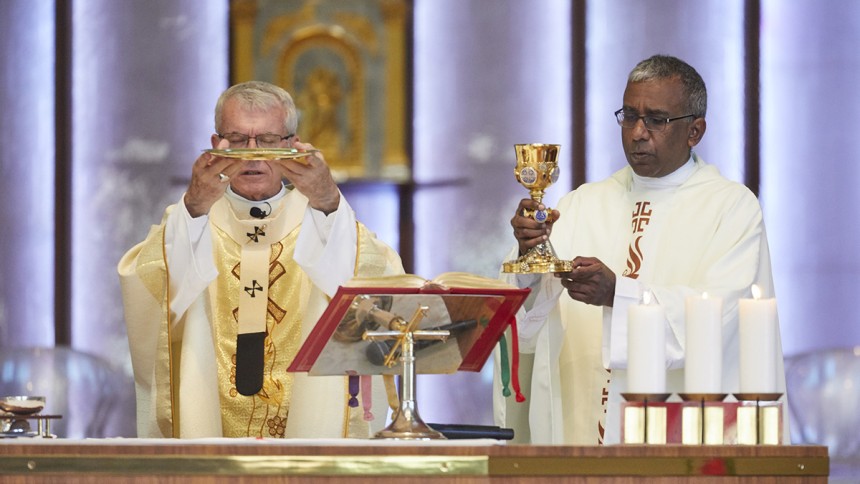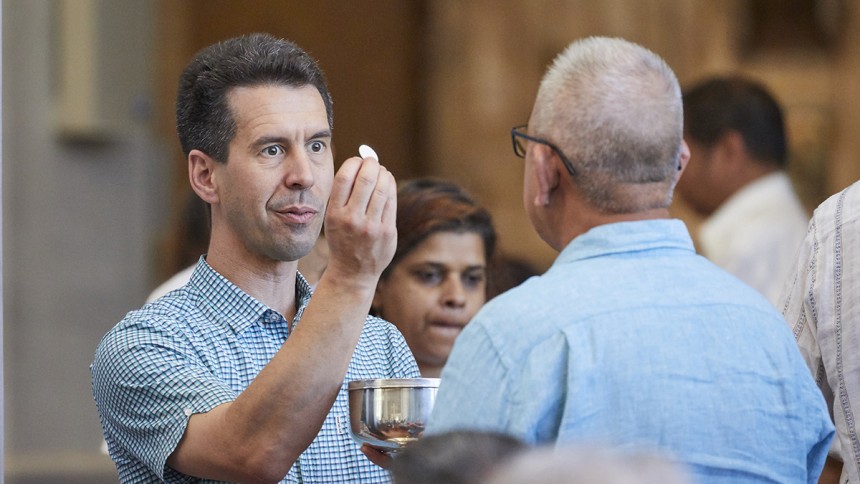LITURGICAL FORMATION & RENEWAL PROGRAM: We go forth from the Eucharist to serve the needs of our brothers and sisters, says Sr Kerry
Just as we gather as a community in the Eucharist, we go forth from the Eucharist to serve the needs of our brothers and sister, explains Centre for Liturgy Director Sr Kerry Willison RSM, in the fourth and final video for the Liturgical Formation and Renewal Program for the Archdiocese of Perth, Why Do We Gather?
Released to the Catholic community this week, Why Do We Gather? presented by Sr Kerry Willison RSM, focuses on the words in the Eucharistic prayer ‘Do this in memory of me’. (Luke: 22:19).

Released to the Catholic community this week, Why Do We Gather? presented by Sr Kerry Willison RSM as the fourth and final video of the Liturgical Formation and Renewal Program, focuses on the words in the Eucharistic prayer ‘Do this in memory of me’. (Luke: 22:19).
The Liturgical Formation and Renewal Program, launched at the start of Lent in parishes across the Archdiocese with an introduction from Archbishop Costelloe, aims to encourage the Perth Catholic community to awaken a renewed love for and awareness of the extraordinary gift we have in the Eucharist, in the Mass.
Leading the program is the Episcopal Vicar for Education and Faith Formation, the Very Rev Fr Vincent Glynn, supported by Centre for Liturgy Director, Sr Kerry Willison RSM, Director of Religious Education at Catholic Education Western Australia, Deacon Mark Powell, Director of the Centre for Faith Enrichment, Dr Marco Ceccarelli and Catechist Services Field Officer, Mildred Rego.
During the four weeks of lent, video messages highlighting an understanding of What is Sacramentality, What is Liturgy, Signs and Symbols in the Liturgy and Why we Gather to celebrate Liturgy will be shown in our parish communities.
The videos feature Fr Vincent Glynn, Sr Kerry Willison RSM and Mildred Rego.

Why Do We Gather? explains how the Mass has its origins in the Jewish synagogue service. Photo: Adobe.
The Jewish people, explains Sr Kerry, gathered in community to worship God - they worshipped in the Temple and those who lived elsewhere around the Mediterranean worshipped in their synagogues.
“After Jesus ascended into heaven, we hear in the Acts of the Apostles (2:42) how the first Christians, who were also Jewish, went to the temple on Saturdays but gathered in homes in the evening for the celebration of The Lord’s Supper which became known as the Eucharist,” Sr Kerry said.
Why Do We Gather? explains how the Mass has its origins in the Jewish synagogue service.
“Just as the Jewish people gathered to listen to the word of God from the Old Testament, so too do we when we gather for the Eucharist; we come together to hear God’s word,” she said.
“When we gather for the Eucharist, we gather as a community to participate in the Paschal Mystery of Christ - His Passion, Death and Resurrection, which we celebrate at every Mass. (1 Corinthians 11: 26).
“Just as we gather as a community in the Eucharist, we go forth from the Eucharist to serve the needs of our brothers and sisters,” Sr Kerry said.

Perth Archbishop Timothy Costelloe SDB and Cathedral Dean Fr Sean Fernandez elevate the Body and Blood of Christ at Christmas Day Mass, Sunday 25 December 2022 at St Mary’s Cathedral. Photo: Ron Tan/Archdiocese of Perth.
Seek nourishment, satisfaction in Eucharist, says Pope Francis
By Junno Arocho Esteves
Addressing an estimated 20,000 people gathered in St Peter's Square for his Sunday Angelus address 19 June 2022, on the Solemnity of the Body and Blood of Christ, Pope Francis said that, through the Eucharist, "everyone can experience this loving and concrete attention of the Lord."
When received with faith, the Holy Father explained, the Eucharist not only nourishes and satisfies one's hunger for consolation and love, but gives Christians the strength to nourish others.
"Sometimes there is the risk of confining the Eucharist to a vague, distant dimension, perhaps bright and perfumed with incense, but rather distant from the challenges of everyday life. In reality, the Lord takes all our needs to heart, beginning with the most basic," he said.

A Minister of the Eucharist distributes Holy Communion at St Mary’s Cathedral, Sunday 25 December 2022. Photo: Ron Tan/Archdiocese of Perth.
Recalling the Sunday Gospel of St Luke, which recounted the multiplication of the loaves and fishes, Pope Francis said the miracle did "not happen in a spectacular way, but almost secretly" and that as the crowd eats, "they realise that Jesus is taking care of everything."
"This is the Lord present in the Eucharist. He calls us to be citizens of heaven, but at the same time he considers the journey we have to face here on earth," he said. "If I have hardly any bread in my sack, he knows and takes care of it himself."
Just as Jesus orders the disciples to help him feed the crowd in the Gospel story, he said, Christians today must learn to take care of the needs of those around them who not only suffer physical hunger but also spiritual hunger.
"There is hunger for food around us, but also of companionship; there is hunger for consolation, friendship, good humor; there is hunger for attention, there is hunger to be evangelized," the pope said.
In the Eucharist, he added, Christians find Jesus' attention "to our needs and the invitation to do the same toward those who are beside us. We need to eat and feed others."

Just as we gather as a community in the Eucharist, we go forth from the Eucharist to serve the needs of our brothers and sisters, Centre for Liturgy Sr Kerry Willison RSM has said in the fourth and final video for the Liturgical Renewal and Formation Program. Photo: Supplied.
Pope Francis said that when receiving the body and blood of Christ, Christians receive the assurance of the presence of Jesus, "who makes himself our traveling companion, he enters into our affairs, he visits us when we are lonely, giving us back a sense of enthusiasm."
Giving himself in the Eucharist, "the Lord gives meaning to our lives, our obscurities, our doubts," the pope said. "And this meaning that the Lord gives satisfies us. This gives us that 'more' that everyone is looking for, which is namely the presence of the Lord."
